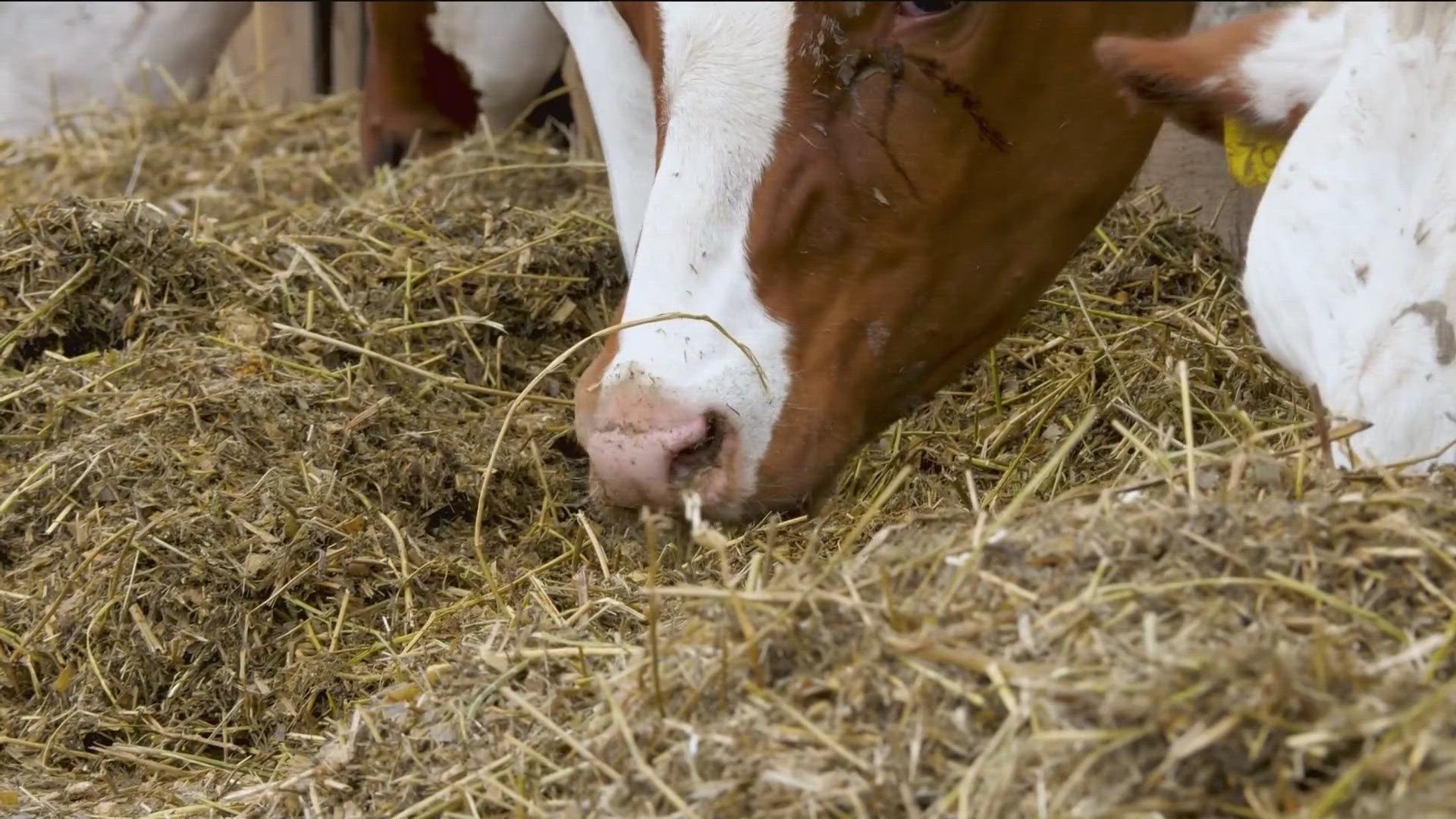CORVALLIS, Ore. — Researchers at Oregon State University received a million-dollar grant to study seaweed and how it can help reduce the greenhouse gas that's released from cattle.
It is the circle of the digestive system. When cattle eat and swallow their food, their stomach begins breaking it down.
The digestive track is much tougher than a humans, so they can digest the grass and hay that is consumed and it creates gas in the process and needs to find its way out.
On average, when that gas gets released, they producers 250 liters of methane, per cow, per day. That's more than 66 gallons.
It's not coming out the end of the cow that you might think.
"No it's not the farts, it's the burps," said researcher, Juliana Ranches.
The ag sector accounts for 9.4 percent of greenhouse gas emissions in the United States.
Cattle are responsible for more than a quarter of that because of the methane gas that is released.
There is a promising solution and it comes in the form of seaweed.
"Seaweed is something that kind of works as a filter," said Ranches.
There's already studies evolving in Europe and Australia showing that it works, reducing emissions by more than 80%.
The challenge for people in the West, it's a different kind of seaweed that's not as accessible to get.
That's where researchers, like Ranches, from Oregon State University, are studying how to use Pacific Dulse Seaweed as a local option for the cattle's diet.
"Our seaweed is land based, so it's produced in tanks, not in the ocean," she said. "So another point of this project is actually try to fine tune the seaweed to be something that has more protein or more trace minerals, to be a supplement that actually is beneficial to the cattle."
It would be for dairy cows and feed lot cattle.
The group of researchers have a baseline collection of how much methane is emitted from their cattle and just two weeks into this five year project, they are beginning to see how the cows like it.
Ranches said the goal isn't to take away the hay and grass, but to use it as an additive, like mixing it into the food.
She said she hopes this can be a solution to lowering the greenhouse gasses and help cattle along the way.
"If we can be part of the solution, I really want to be on this game," she said.

